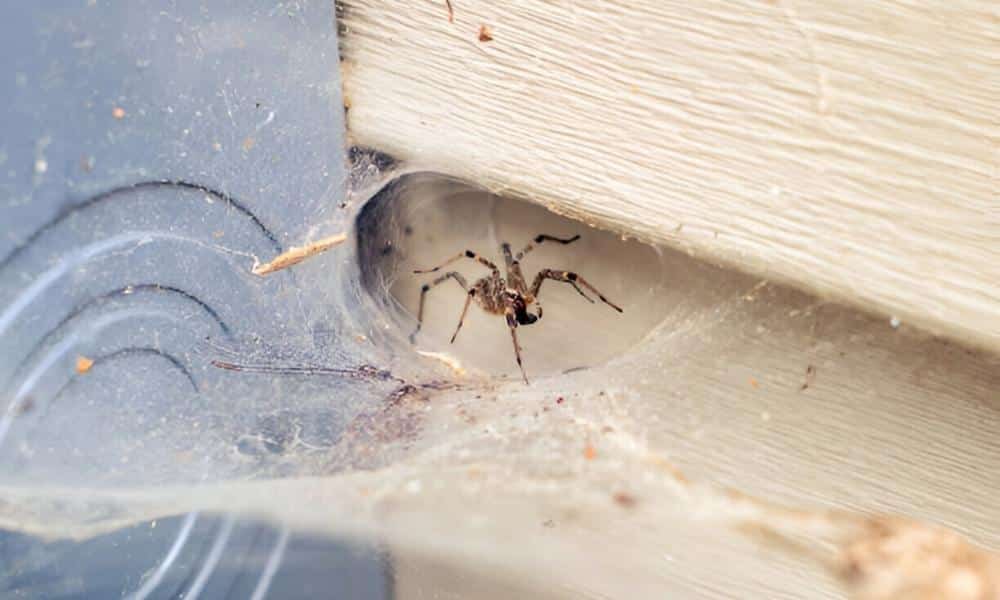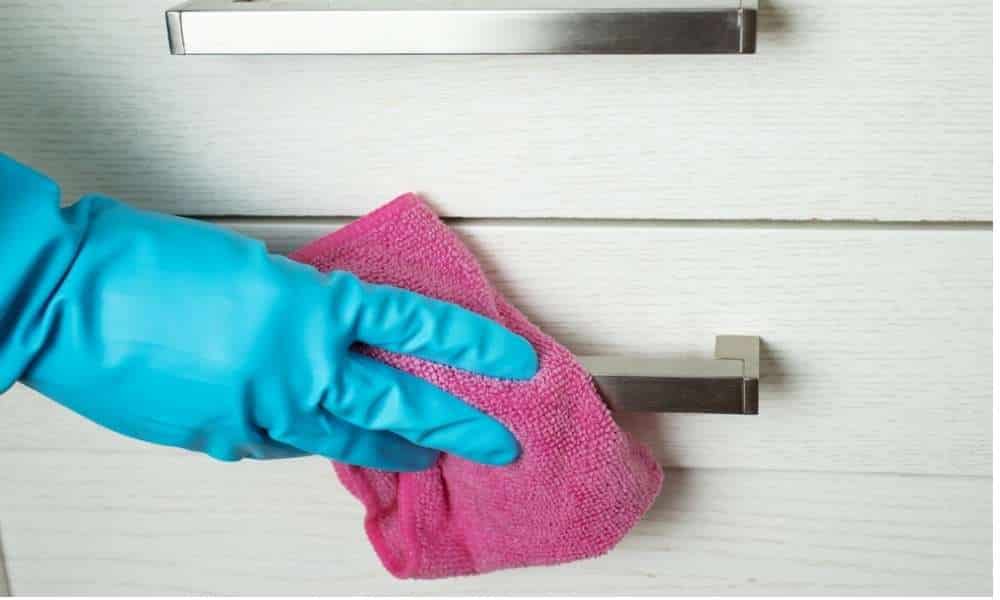While outdoor furniture provides a good place to chill out and mingle with friends, spiders can make the environment a terrible experience. Spiders create untidy webs and they can evict or discourage people from outdoors if they hate them. To get to the root of the problem, why these arachnids are drawn to your furniture, is the starting point in getting rid of them. This article is an extensive guide to keep spiders off Outdoor furniture, plus how to keep them from re-invading in the future.
01. Why Spiders Are Attracted to Outdoor Furniture
Spiders get attracted to your outdoor furniture because it serves them as a perfect shelter, a rich food source, and their favorite environment. The holes in the furniture, especially those made either of wood or rattan, are perfectly good places for spiders to go and spread their webs. Their leading sustenance comes from the critters that take shelter in the area when the bright patio lights are switched on or from any food crumbs that fall on the area. Besides, the moisture and shade from the plants in the downwind make the surrounding area even better for spiders to live in.
02. Regular Cleaning and Maintenance
One of the simplest yet most effective ways to keep spiders away is regular cleaning and maintenance of your furniture. Dust and dirt create a conducive environment for insects to thrive, which in turn attract spiders. Wiping your furniture once a week with a damp cloth and some soft detergent can significantly minimize spider activity.
For cushions, use a portable vacuum cleaner for cleaning dirt, webs, and egg sacs from seams and corners. Pay special attention to the underside of your furniture and hidden corners where spiders lay eggs, as webs are usually found there. A regular cleaning routine will not only kill existing spiders but also prevent them from returning.
03. Use Natural Spider Repellents
Natural repellents are eco-friendly and safe for your family while effectively deterring spiders. Essential oils like peppermint, lavender, and eucalyptus are powerful deterrents for spiders because of their intense aromas. You can prepare a spray of these oils mixed with water and apply it over your furniture. Another option is using citrus peels.
The aroma that repels spiders is left if the peels are rubbed over surfaces. For a stronger solution, dilute equal parts of water with dish soap and by adding some essential oils you can make a DIY spider spray.
04. Install Physical Barriers
Physical barriers are an excellent way to prevent spiders from accessing your furniture. Invest in tightly-fitted, waterproof furniture covers to shield your furniture from dust, moisture, and pests. Mesh screens are another great option for open patios, as they block insects and spiders while maintaining ventilation. Additionally, inspect your furniture for cracks or gaps where spiders might hide. Use silicone sealant or wood filler to close these openings and keep your furniture spider-free.
05. Light and Environmental Adjustments
You can make your patio an option to not invite spiders in if you change up the outside light and atmosphere of the area. Bright outside lights are a usual trap for insects, which then indirectly invite spiders to you. Changing your usual lights to yellow bug-repellent bulbs can solve this problem.
In the same way, cleaning up your patio and ensuring that it is uncluttered is very important. Cut excess branches, shrubs, and trees near furniture to clear away potential hiding places. Besides, avoid storing things like woodpiles or unused tools out of doors and close to your patio as they can provide refuge places for spiders and other insects.
06. Chemical Solutions for Persistent Problems
Chemical treatments might work if natural cures and cleaning aren’t enough. Spider sprays specifically designed for outdoor use are a quick and effective option. These sprays can be applied to furniture legs, undersides, and surrounding areas.
Insecticides, when used sparingly and as per instructions, provide long-lasting protection against spiders and other pests. For eco-friendly alternatives, silica gel or diatomaceous earth can be sprinkled near furniture legs or cracks. These powders work by dehydrating spiders, making them less likely to linger in your space.
07. Choose Spider-Resistant Furniture
The type of material a piece of furniture is made from plays a role in how appealing it is to spiders. Spiders are the least likely to live in metal furniture as the smoothness of the surface and the lack of corners for hiding are the two main advantages of it over, for example, wicker or rattan furniture.
Spiders are the most prone to using plastic in comparison to other furniture options that don’t require much maintenance. If you desire wooden furniture, opt for painted or treated wood, instead of raw wood, which may invite spiders and other bugs.
08. Modern Tools and Advanced Techniques
With today’s technology, you can get powerful tools to get rid of spiders. A lot of people choose ultrasonic pest repellers because they make high-frequency sounds that scare spiders and other bugs away without hurting people or pets. Another good way is to use glue traps, which catch spiders without drawing attention to yourself and let you watch what’s going on. Outdoor bug foggers can cover bigger areas and protect against spiders temporarily but effectively. These tools can help you clean and stay safe in addition to what you already do.
09. Landscaping and Surrounding Environment
The surroundings around your porch are very important for keeping spiders away. Planting herbs that keep spiders away, like mint, citronella, or lavender, around your porch will make a natural barrier. Getting rid of leaf litter, mulch, and other trash in the area gets rid of places where spiders could live. Putting dirt or stones around the edge of the patio can also keep spiders from coming closer. Keeping your outdoor space clean And organized not only makes it look better, But it also keeps spiders And other bugs away.
How Do You Prevent Spider Webs
Seal Cracks and Gaps: Check windows, doors, and baseboards for cracks, gaps, or holes. Seal with caulk or weatherstripping to keep spiders out.
Regular Cleaning: Dust and vacuum the house regularly, paying attention to corners, ceilings, and other spider-infested places.
Get rid of clutter: Keep storage places tidy and free of spider-attracting items.
Limit outside Attraction: Turn off outside lights or use yellow bulbs to lessen bug (spiders’ prey) attraction.
Natural Repellents: Spray spider-prone areas with diluted peppermint, tea tree, or eucalyptus oils. Fine-mesh window and vent screens prevent spiders from entering.
Remove Existing Webs: To prevent spiders from returning, clear webs fast.
Conclusion
Regular cleaning, using natural deterrents, setting up physical barriers, and thoughtful planting are essential to repeatedly deter spiders from outdoor furniture. By eliminating the factors that attract spiders and taking these measures, you can maintain a clean, comfortable, and spider-free patio area. It’s important to be consistent whether you use chemical solutions, herbal medicines, or modern tools. With these tips, you can get back your outdoor furniture and enjoy years of peace without having to deal with spiders.
1. What are the best natural remedies to keep spiders off outdoor furniture?
Natural remedies like essential oils (peppermint, tea tree, and eucalyptus), citrus peels, and vinegar solutions are highly effective at repelling spiders. Applying these to your furniture regularly can deter spiders without using harmful chemicals.
2. How often should I clean my outdoor furniture to prevent spiders?
Outdoor furniture should be cleaned once a week by wiping down the surfaces with light soap and a wet cloth. Once a month, you should do a deeper clean that includes cleaning the cushions and checking hard-to-reach places to make sure spiders don’t build nests.
3. Do certain types of outdoor furniture attract fewer spiders?
Spiders don’t like metal and plastic furniture as much because it has smooth sides and no cracks. You could also use painted or treated wood, which is better at keeping out water and bugs than raw wood.
4. Will plants that keep spiders away help keep spiders off of my patio furniture?
Of course! Spiders don’t like plants that smell bad, like lavender, mint, citronella, and marigolds. Putting these plants around your backyard or near your furniture will make a barrier that spiders won’t want to cross.
5. Are ultrasonic pest repellents effective against spiders on outdoor furniture?
High-frequency sounds from ultrasonic bug repellents do keep spiders and other pests away. Although their efficiency may vary based on the climate and the type of spider, putting them near your furniture can protect it all the time





